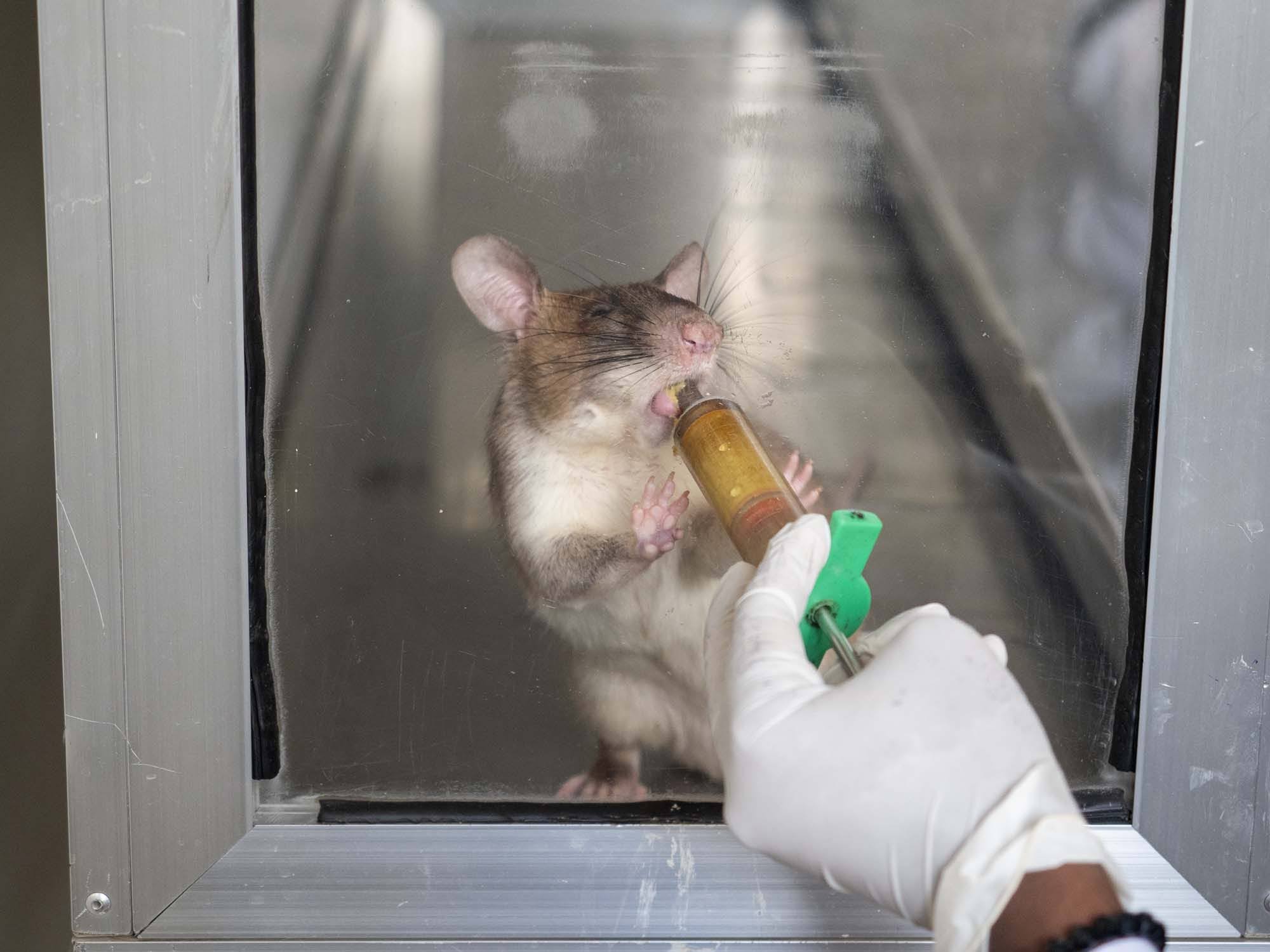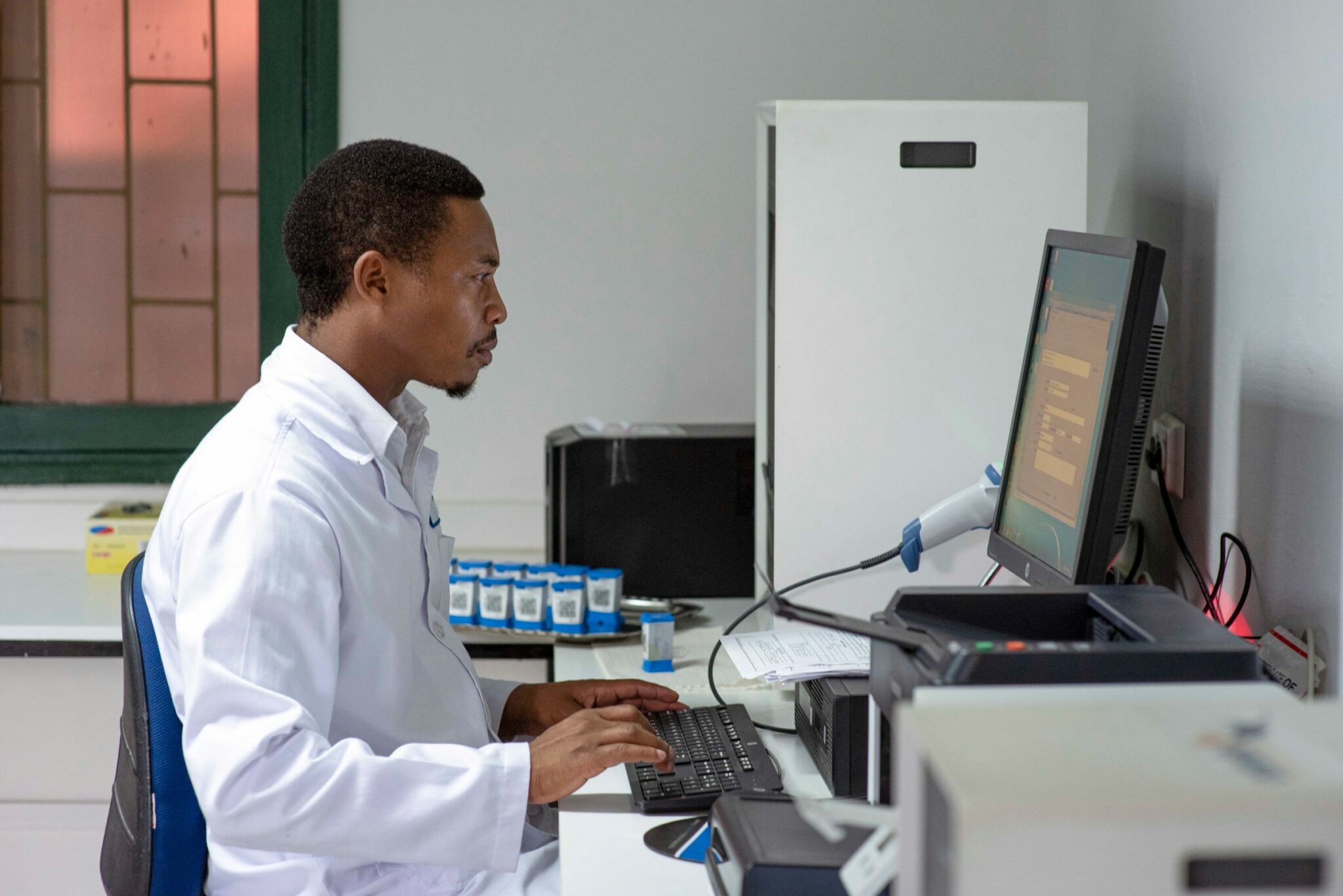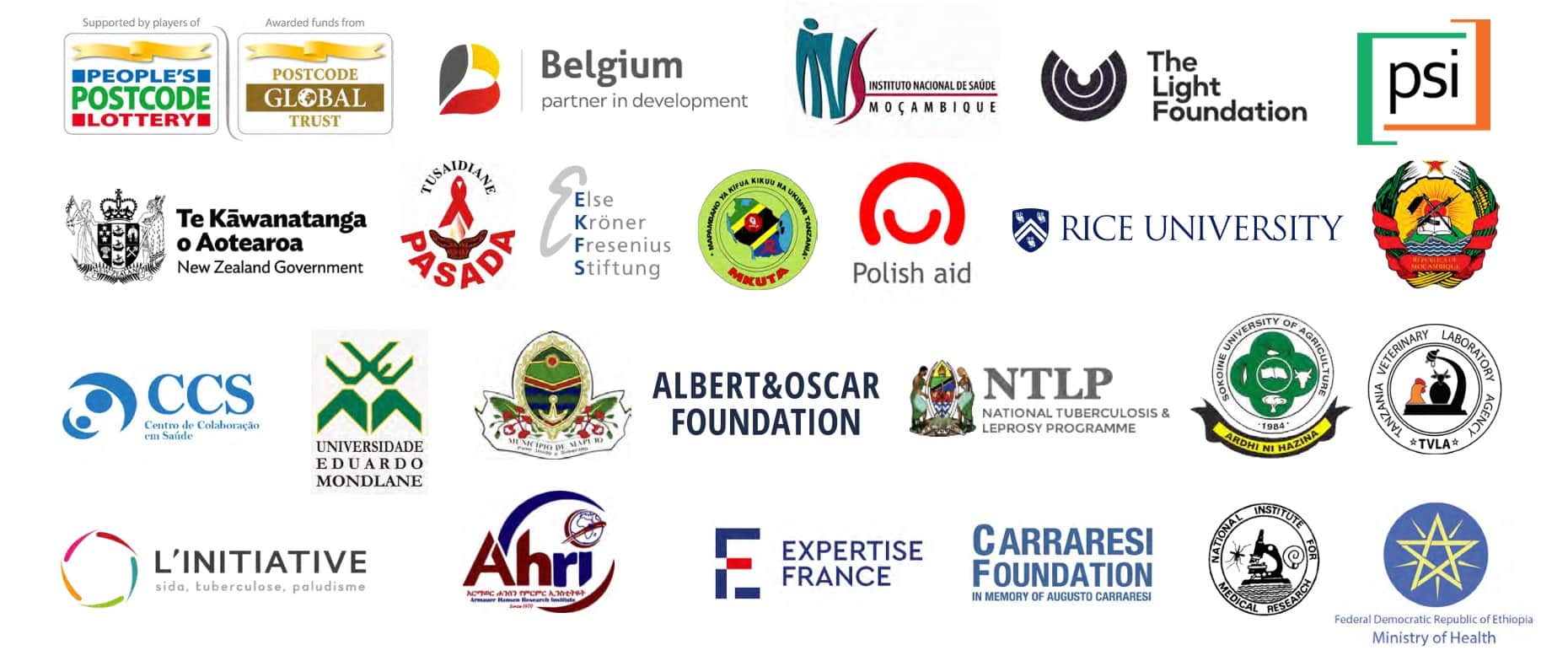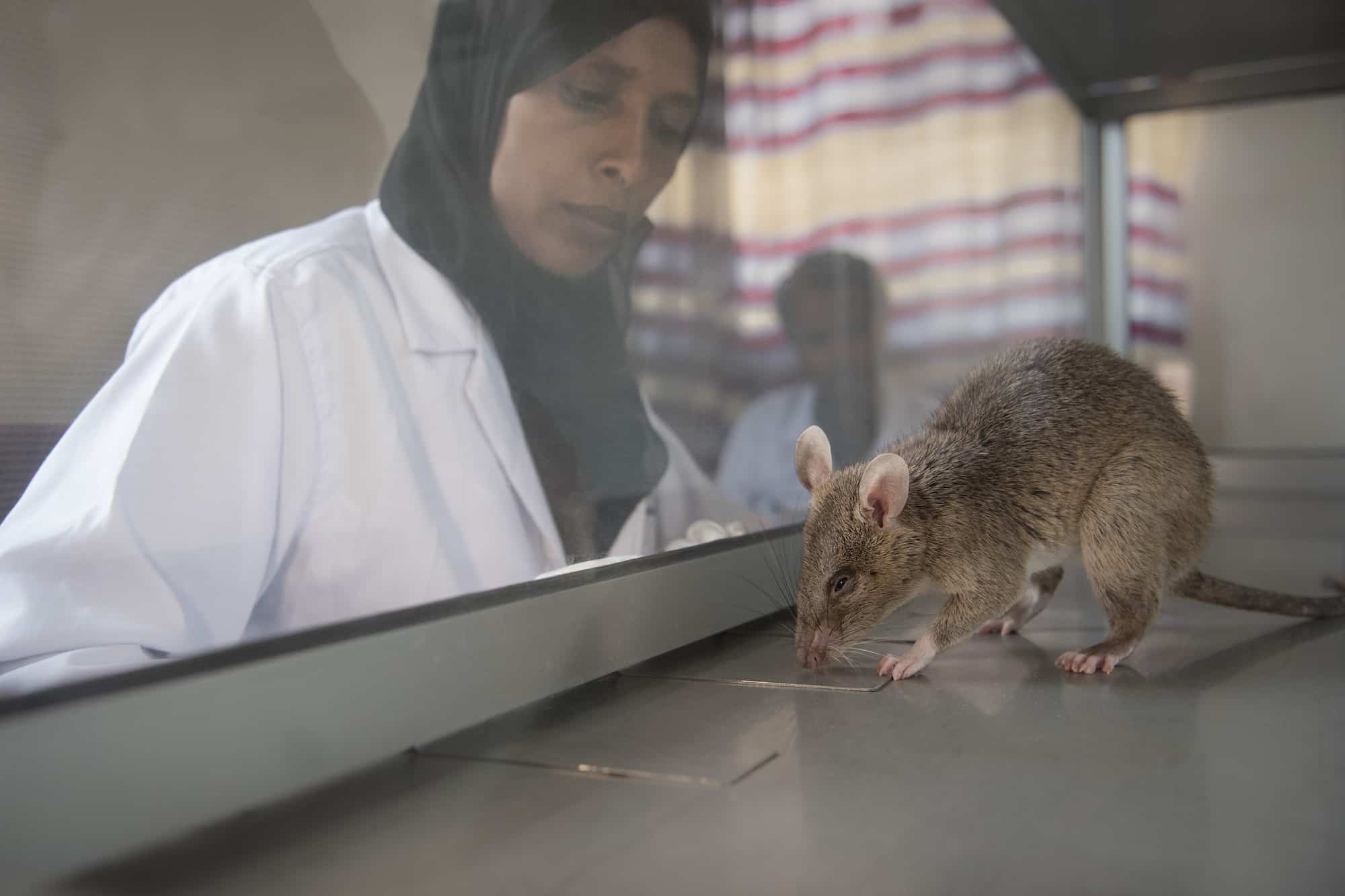Dar es Salaam, April 29, 2025 — In a breakthrough blending science and social innovation, APOPO’s trained African giant pouched rats — affectionately called HeroRATs — have been shown to significantly improve tuberculosis (TB) case detection, even at clinics already using the sophisticated Xpert MTB/RIF diagnostic test. Published in PLOS ONE, the study affirms the rats’ unique contribution to global public health efforts.
Identifying More TB Cases That Matter
APOPO’s team of researchers, led by Dr. Tefera Agizew, evaluated over 43,000 sputum samples from 34,565 people with suspected TB in 69 health facilities across Tanzania during 2023. These facilities used either smear microscopy or the Xpert MTB/RIF test as a first-line diagnostic method.
- Smear microscopy is a traditional method where a sample is stained and examined under a microscope to look for TB bacteria. It’s affordable and widely available, but less sensitive, especially in early or mild cases.
- The Xpert MTB/RIF test is a molecular diagnostic process that detects TB DNA and resistance to rifampicin. It’s faster and more accurate than smear microscopy and delivers results in under two hours using a cartridge-based system. However, it’s more expensive and may still miss cases with very low bacterial loads.
Despite these tests being used previously on all samples, APOPO’s HeroRATs detected an additional 2,176 TB cases — a 48 percent overall increase over what the clinics identified alone. Their added value was substantial: a 44 percent increase over Xpert and a 59 percent increase over smear microscopy. Many of these extra cases had low bacterial levels — making them hard for standard tools to detect.
How HeroRATs Enhance Diagnosis

Each sample declared negative by a clinic was re-tested at APOPO’s lab, where trained rats sniffed samples placed under a series of holes in a controlled chamber. The rats are trained to pause for three seconds when they detect TB-specific scents in a sample. Each rat can screen over 100 samples in less than 20 minutes, offering a rapid and scalable diagnostic solution.
In diagnostic terms, the rats showed:
- Sensitivity of 98.7% compared with Xpert-positive patients and 82.3% with smear-positive patients.
- Specificity of 71.6% compared with Xpert and 65.6% compared with smear.
Understanding Sensitivity and Specificity
Sensitivity measures a test’s ability to correctly identify people who have the disease. High sensitivity means few missed cases. In this study, the rats were highly sensitive — they correctly identified almost all of the TB-positive patients confirmed by Xpert.
Specificity refers to the ability to correctly identify those who do not have the disease. High specificity means fewer false positives. The rats’ specificity indicates they reliably ruled out TB in a majority of TB-negative patients.
Together, these metrics define their accuracy, and demonstrate that HeroRATs can detect TB cases that other methods miss, particularly in people with lower levels of bacteria.
Affordable, Scalable, and Fast

HeroRATs offer a highly cost-effective method of TB detection, with each sample costing about $1 USD to process — compared to around $18 USD for Xpert testing. This makes them particularly valuable in low- and middle-income countries, where resources are limited but the need for rapid, accurate diagnosis is urgent.
Even in well-equipped clinics, the rats added significant diagnostic power, suggesting they are not just a backup method but a strategic partner in national TB programs.
Unlocking New Frontiers in TB Diagnosis
The study’s authors recommend further research comparing HeroRATs with more advanced tools like Xpert Ultra and exploring their use as a first-line screening tool. HeroRAT detection is currently only used as a second-line diagnostic tool for samples that have previously been tested using conventional diagnostics. With unmatched speed, affordability, and accuracy — especially in detecting difficult-to-find cases — APOPO’s rats may in future play an even more significant role in ending TB.
By the end of 2023, the rats had already helped identify over 20,000 missed TB cases in Tanzania. The study’s findings offer strong evidence that HeroRATs can play a valuable role alongside conventional diagnostics in broadening TB case detection.
Read the Full Study:
APOPO is deeply grateful for the vital support of our partners and donors including health authorities in the countries it works.


